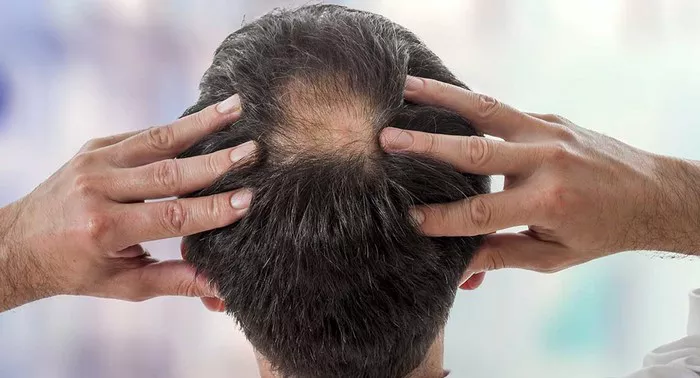Experiencing tingling sensations on the scalp coupled with hair loss can be a cause for concern and may prompt individuals to seek answers about the potential underlying causes. In this article, we will delve into the various reasons why the scalp might tingle and how it could be linked to hair loss, shedding light on this often perplexing issue.
The Intricate Connection: Scalp Tingling and Hair Loss
Before delving into the potential causes, it’s essential to understand the intricate connection between the scalp and hair health. The scalp is a complex network of blood vessels, hair follicles, and nerves. Tingling sensations can be an indication that something is affecting this delicate balance, and when coupled with hair loss, it may signify an underlying issue that requires attention.
See Also: Why Castor Oil May Contribute to Hair Loss: A Simple Guide
1. Inflammation and Irritation: A Common Culprit
Scalp tingling can be a result of inflammation or irritation. Conditions such as seborrheic dermatitis, psoriasis, or even a reaction to certain hair care products can lead to an irritated scalp. When inflammation occurs, it can affect hair follicles, leading to hair loss. It’s crucial to address the underlying inflammation to alleviate both the tingling sensation and potential hair loss.
2. Poor Scalp Circulation: Impeding Hair Growth
Proper blood circulation is vital for a healthy scalp and hair growth. Tingling sensations may be a sign of poor blood circulation to the scalp. Reduced blood flow means less oxygen and nutrients reach the hair follicles, potentially hindering their ability to produce healthy hair. Activities such as scalp massages, regular exercise, and a balanced diet can contribute to improved circulation.
3. Tight Hairstyles and Traction Alopecia: Pulling at the Roots
Wearing tight hairstyles frequently, such as tight ponytails or braids, can cause tension on the hair follicles, leading to a tingling sensation. Over time, this tension can result in a condition known as traction alopecia, characterized by hair loss caused by the constant pulling on the hair shafts. It’s essential to opt for looser hairstyles to prevent damage to the hair follicles.
4. Stress and Telogen Effluvium: Affecting the Hair Growth Cycle
Stress can manifest physically, and one way it may affect the body is through the hair growth cycle. Experiencing intense stress or a traumatic event can trigger a condition called telogen effluvium. This disrupts the normal hair growth cycle, pushing a significant number of hair follicles into the resting phase, ultimately leading to hair shedding. The tingling sensation may be linked to the stress-induced changes in the body.
5. Hormonal Changes: Shifting the Balance
Hormonal fluctuations, particularly during periods such as pregnancy, childbirth, or menopause, can impact the hair growth cycle. Changes in hormone levels can lead to a condition known as androgenetic alopecia, commonly referred to as female or male pattern baldness. Tingling sensations on the scalp may accompany this type of hair loss.
6. Nutritional Deficiencies: Nourishing Hair from Within
The health of your hair is closely tied to your overall nutritional status. Deficiencies in essential vitamins and minerals, such as iron, zinc, and vitamin D, can contribute to hair loss and scalp issues. Ensuring a well-balanced diet with sufficient nutrients is crucial for maintaining healthy hair and a balanced scalp.
7. Underlying Medical Conditions: Investigating Deeper Issues
Certain medical conditions can contribute to both tingling sensations on the scalp and hair loss. Autoimmune diseases, thyroid disorders, and conditions affecting the nervous system may manifest symptoms in the scalp region. Seeking medical advice is essential to diagnose and address any underlying health issues.
8. Medication Side Effects: Unintended Consequences
Some medications may have side effects that impact hair health. Chemotherapy drugs, for example, are well-known for causing hair loss. If you’re experiencing scalp tingling and hair loss and are on medication, it’s crucial to consult with your healthcare provider to explore potential connections.
Addressing the Issue: Seeking Professional Guidance
If you’re experiencing persistent scalp tingling accompanied by noticeable hair loss, it’s crucial to seek professional guidance. A dermatologist or a healthcare provider specializing in hair health can help identify the underlying cause and recommend an appropriate course of action.
Conclusion: Navigating the Path to Healthy Scalp and Hair
Scalp tingling and hair loss can be distressing, but understanding the potential causes is the first step toward finding a solution. Whether the issue stems from inflammation, poor circulation, tight hairstyles, stress, hormonal changes, nutritional deficiencies, underlying medical conditions, or medication side effects, addressing the root cause is essential for restoring scalp health and promoting hair growth.
Regular scalp care, a balanced lifestyle, and seeking professional advice when needed can contribute to a healthier scalp and a head full of vibrant, resilient hair. By unlocking the mysteries behind scalp tingling and hair loss, individuals can embark on a journey to reclaiming confidence in their hair health and overall well-being.


